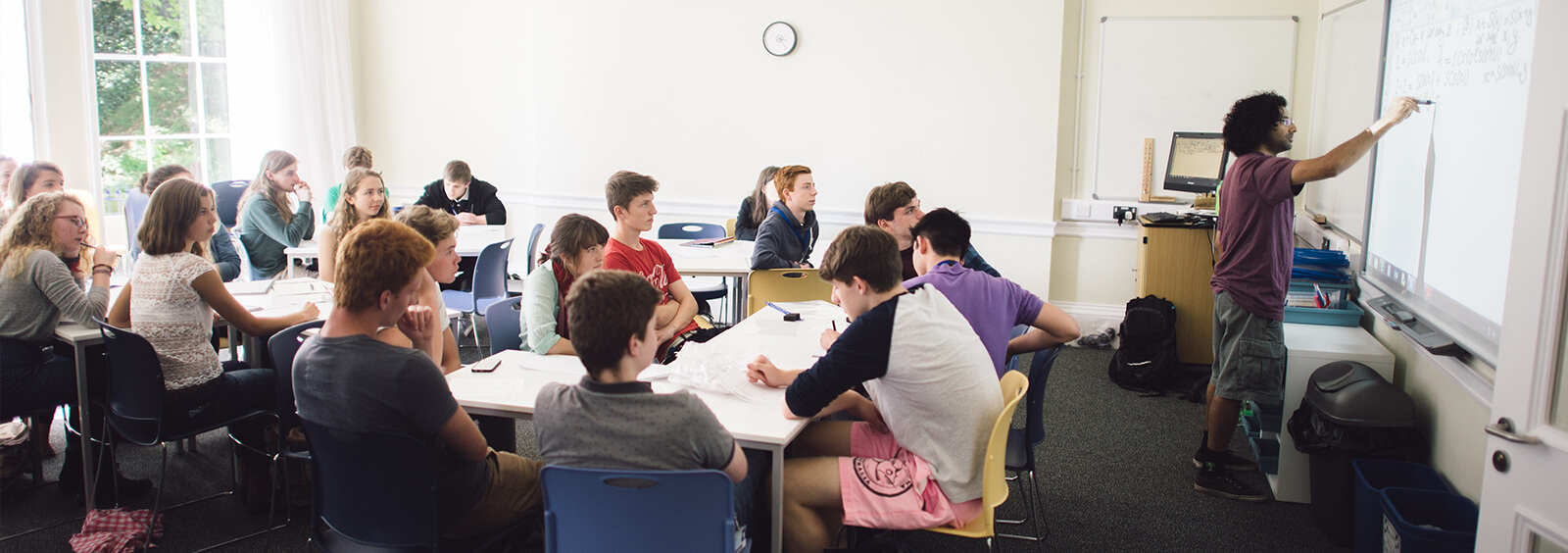Problem Solving
At Exeter Maths School we believe in preparing students to be adaptive and able to tackle challenges confidently, and so problem solving is embedded in all our lessons. We encourage a collaborative approach to tackling problems with plenty of discussion and sharing ideas. Although there will be times when students need silent concentration, they gain far more from working together and learning from one another than they would do working in isolation.
We also offer optional problem solving classes for Maths, Physics and Computer Science. Initially these are used to develop problem solving skills and techniques, and broadening students’ skills. Later in the course, they focus on supporting students as they prepare for university entrance exams such as STEP, MAT and PAT, as well as preparing for competitions such as BMO and BIO.

